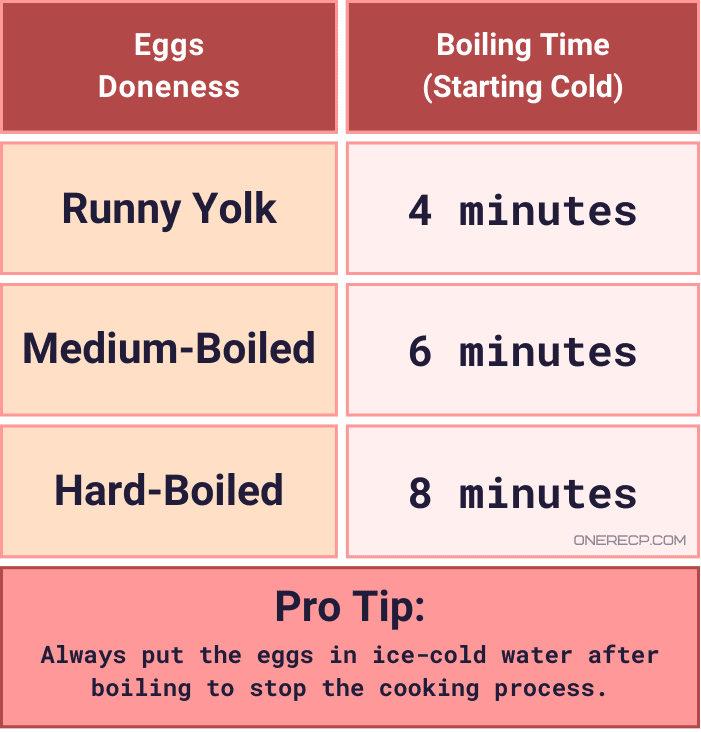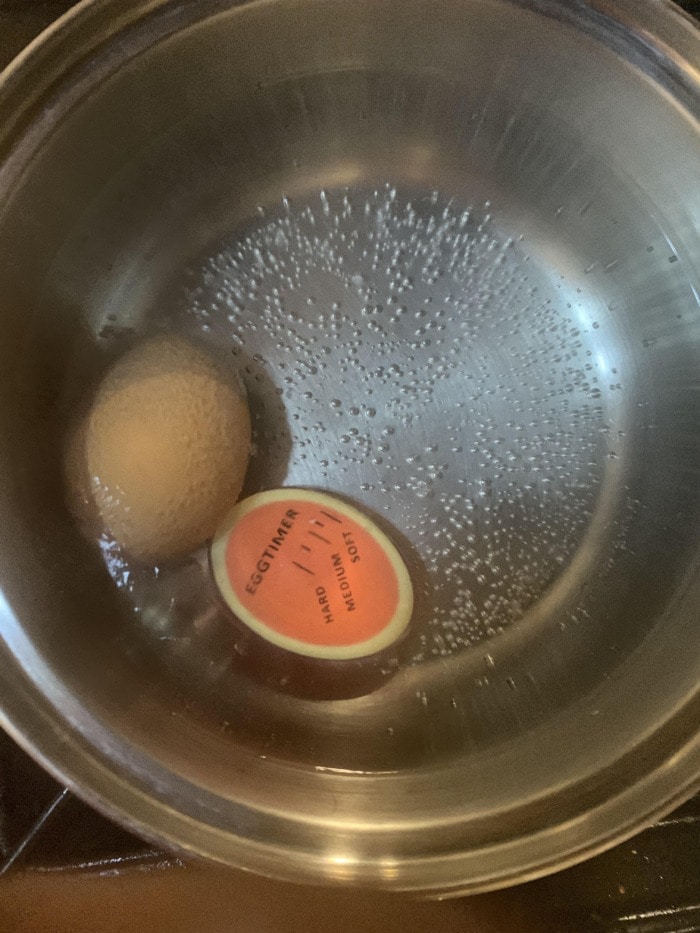Anyone who’s ever boiled eggs has probably noticed that there will occasionally be some floaters.
This naturally brings the question if hard boiled eggs are done when they sink or when they float.
Unfortunately, the answer to this question isn’t as straightforward as it seems.
Even though it seems reasonable that eggs should sink when they are hard boiled, there are some cases in which they’ll float and still be safe to eat.
Do boiled eggs sink or float when they’re done?
In order to determine how buoyancy affects the doneness of eggs, we need to take a look at what makes them sink or float.
Eggs, like any other object in the universe, float when their molecule structure is less dense than water.
Since the density of fresh eggs is higher than that of water, they sink even when they’re still raw.
As they age, however, eggs lose some of their moisture and surface area and begin to float.
In this regard, boiled eggs aren’t any different.
In fact, boiled eggs have an even higher density than raw ones so they sink to the bottom even if they aren’t fresh. Whenever boiled eggs float it’s most often because they’re too old and haven’t finished cooking.
Another, albeit less probable reason, that can cause hard boiled eggs to float is adding too much salt.
That’s because using too much salt increases water density and makes the eggs buoyant.
Nevertheless, you’ll need to have added 2 tablespoons of salt or more per cup of water for this effect to occur.
Lastly, boiled eggs will also float if they’re cracked since their density will decrease as they expand outside the shell.
How long should you boil eggs?
Boiling eggs can be a tricky endeavor if you don’t know how long you should let them cook.
There’s a nifty little gadget specially designed for this purpose, but I’ll get to that in the next entry.
The amount of time you need to cook boiled eggs depends on the degree of doneness you’re looking for.
For soft-boiled eggs with a runny yolk you’ll need 4 minutes of cooking time, whereas medium-boiled and hard-boiled eggs will take 6 and 10 minutes respectively.
Once the eggs are done, you should place them in a bowl with ice cold water to prevent overcooking.
Bear in mind that these cooking times apply to eggs that are boiled in cold water.
If you boil your water first (which I don’t recommend doing since the eggs might crack) you should shave 2 minutes off these estimates.

How to know when boiled eggs are done
The most practical way to tell if your boiled eggs are completely done is to use a dedicated egg timer.
This simple gadget barely costs a dime on Amazon and comes with a scale which measures whether your eggs are soft, medium or hard boiled.
All you need to do is place the timer alongside your raw eggs when boiling and wait until it reaches your desired level of doneness.

If you don’t want to add another gadget to your kitchen arsenal, then you can check the doneness of your eggs by giving them a spin.
Simply place one of your eggs flat on your kitchen counter, then spin it with your fingers.
The egg will spin quick and easy if it’s done and wobble if it’s uncooked.
Unlike the egg timer, the ‘egg spin method’ isn’t useful in determining if your eggs are soft, medium or hard boiled.
Another way to see if your eggs have finished cooking is to shine a light through them.
To do this, place a flashlight behind one of your eggs and check if the light passes through.
If your egg is fully cooked, it will be solidified and the light won’t pass through.
Similarly to the previous method, however, you won’t be able to tell the exact level of doneness of your eggs.
If you want to check out more ways to tell when boiled eggs are done, you can read my article on the topic here.
How to keep hard boiled eggs fresh for longer?
You should store any leftover hard boiled eggs you have in the fridge.
Leaving hard boiled eggs unrefrigerated for more than 2 hours dramatically increases the chance of spoilage.
My short summary
A perfectly boiled egg should sink to the bottom of a pan when it’s finished cooking.
If it floats, then it’s most probably old or cracked.
Even though this doesn’t necessarily mean the egg is bad, it’s best to avoid eating it and toss it out.
It’s simply not worth risking when you can easily get a new batch of eggs for a few bucks.